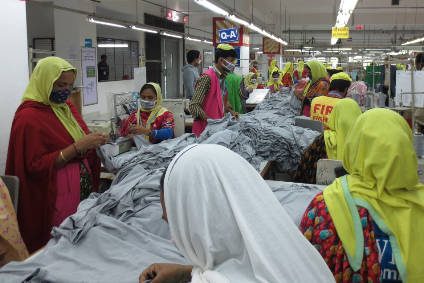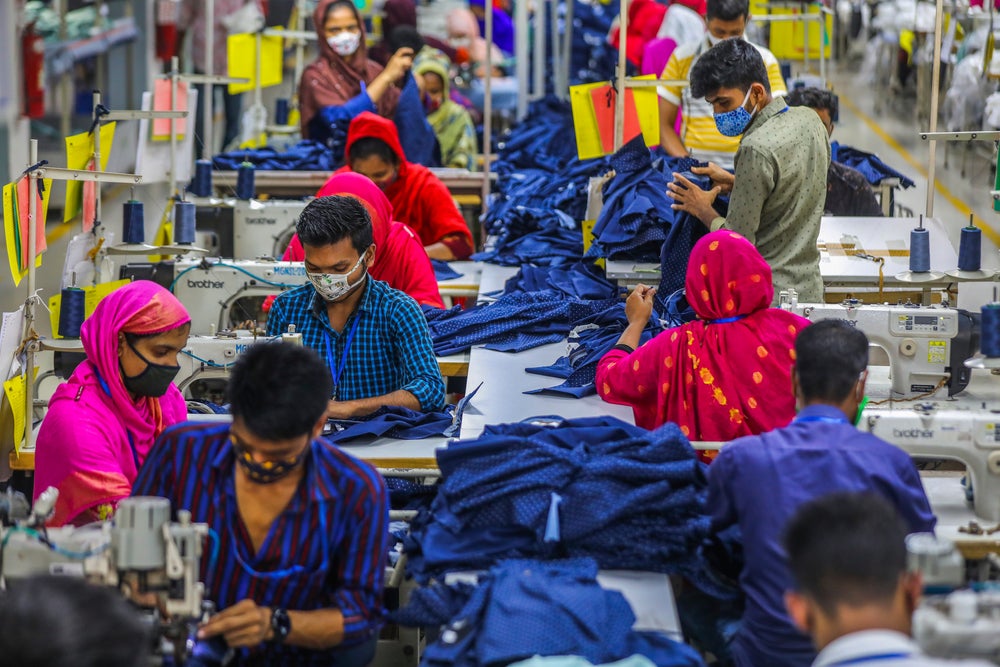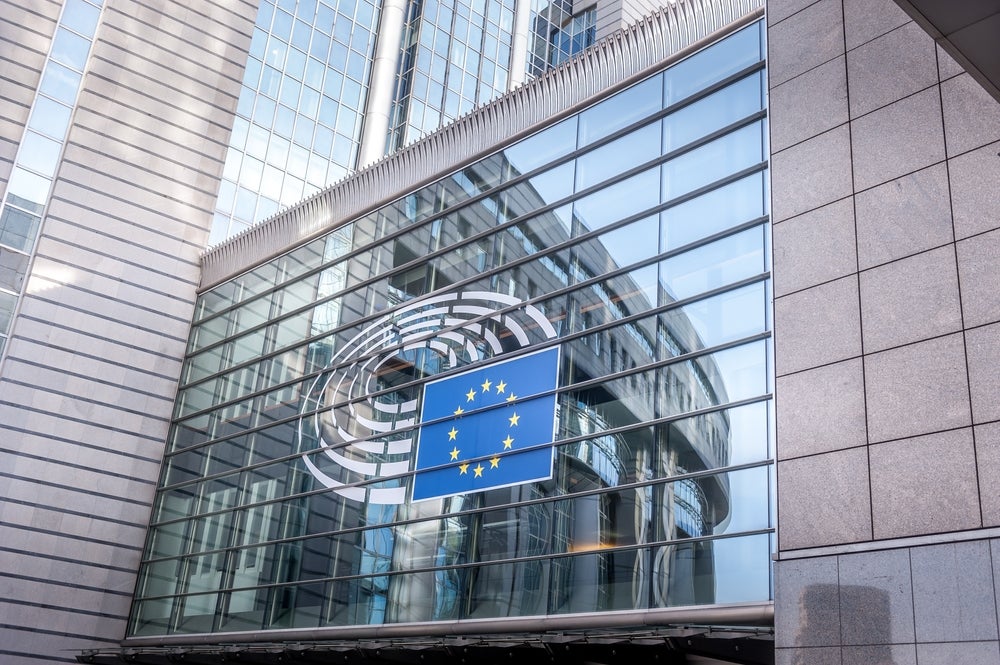
To mark this year’s World Decent Work Day, Jennifer Schappert, executive director of ACT (Action, Collaboration, Transformation), explains why ensuring all parties are at the negotiating table, responsible purchasing practices, and finding fast and effective solutions to disputes are critical steps to helping the global garment industry build back better for workers.
7 October is World Decent Work Day. Today, this annual call for fair remuneration, safety at work and the right to organise falls in one of the most challenging years facing the garment and textile sector in the last decade.
While the pandemic has wreaked havoc in every corner of the industry it is workers and their families who are paying the highest price. In Cambodia approximately 150,000 workers have been impacted by the full or partial suspensions of 450 factories and the closure of 83. In many contexts the impacts are ongoing, such as in Myanmar, where garment factories are currently closed due to a severe second Covid-19 wave.
This year, World Decent Work Day marks a pivotal moment for the textile and garment industry. The impact of the pandemic demonstrates clearly that our business models are not resilient and our systems for engagement and communication break under pressure. As we find pathways through this crisis we have the unique opportunity to rebuild in a way that enables and achieves decent work globally.
For ACT this mandate could not be clearer. ACT is an agreement between 21 major global brands including Hennes & Mauritz AB, Bestseller, and Zara-parent Inditex SA, and IndustriALL Global Union. ACT corporate members represent 30-40% of exports from Bangladesh, Cambodia and Myanmar. For four years ACT has been working in key garment producing countries to support the development of an industry that prioritises decent work based on freedom of association, collective bargaining and living wages supported by brand purchasing practices.
See Also:
As the industry looks for a new model of doing business we are sharing what we have learnt in the hope that our experience and approach can help inform the conversation.
How well do you really know your competitors?
Access the most comprehensive Company Profiles on the market, powered by GlobalData. Save hours of research. Gain competitive edge.

Thank you!
Your download email will arrive shortly
Not ready to buy yet? Download a free sample
We are confident about the unique quality of our Company Profiles. However, we want you to make the most beneficial decision for your business, so we offer a free sample that you can download by submitting the below form
By GlobalData#1: Parties need to be sitting at the same table. Too often programmes designed to achieve decent work outcomes have been top-down, dictated from brands to suppliers. But sustainable solutions are never found in a top-down model. Across the course of the pandemic ACT has been facilitating dialogues between manufacturers, trade unions and global brands in Bangladesh and Myanmar and is resuming dialogue in Cambodia. It is perhaps unsurprising that factory resiliency, worker retrenchment and layoffs, and brand behaviour are three of the most critical issues identified by the parties across all countries.
Through ACT dialogue structures we are seeking to find joint solutions across the various contexts. In Bangladesh, trade unions, brands and the Bangladesh Garment Manufacturers and Exporters Association (BGMEA) are sharing data to identify potential issues related to worker payments and uncompensated retrenchments that need to be resolved. Dialogue is not the easy way out. It takes time and patience to build consensus – particularly during a crisis when answers are not readily available. Investing in dialogue structures now lays the foundations for addressing future challenges on an even footing.
#2: Responsible purchasing practices are a prerequisite for achieving decent work. The purchasing practices of global brands can either enable or erode the ability of suppliers to provide decent work. ACT brands have committed to a set of responsible purchasing practices globally by the end of 2021, including ring-fencing labour costs in pricing negotiations so that worker’s wages cannot be negotiated out of pricing. These commitments are upheld and monitored through an agreement with IndustriALL global union, a comprehensive survey of ACT brand buyers and suppliers, and a procedure by which complaints can be raised against brands on their ACT purchasing practice commitments once they go into effect.
At the outbreak of Covid-19 it was quickly apparent that ACT’s current purchasing practices did not take into account the context of a crisis. The ACT dialogues enabled brands to communicate with trade unions and the BGMEA on their policies for the payment of orders in production. Additional proposals for Covid-19 specific purchasing practices were raised by suppliers and trade unions through ACT dialogues. The crisis has led to overcapacity in the market and price competition, emphasising the need for effective labour costing systems. ACT brands are in the midst of implementing these and have committed to transparency and ongoing engagement with stakeholders in the process. Dialogue on purchasing practices commitments that should be triggered in the event of a crisis is ongoing, but we recognise that the learnings from Covid-19 should be integrated into longer term crisis provisions.
#3: We need dispute resolution mechanisms that are predictable, fair and efficient. Access to remedy is the third pillar of the UN Guiding Principles. However, dispute resolution mechanisms have been largely missing from global supply chains with a few notable exceptions. During this Covid-19 pandemic information flows are disrupted, decisions are taken quickly and the context changes rapidly. Avenues for workers to raise complaints are essential to enabling business to operate while ensuring workers’ rights are respected.
In August 2020, an employer working group of ACT brand suppliers in Myanmar and the Industrial Workers Federation of Myanmar (IWFM) agreed to pilot a dispute resolution mechanism to handle cases pertaining to the implementation of the Myanmar Freedom of Association Guideline. Importantly, the mechanism was negotiated by manufacturers and the IWFM and is backed by ACT members and commitments from brands to take actions on the outcomes of the mechanism. This is a new form of industrial relations that gets to the heart of what it means to “respect human rights” under the UN Guiding Principles on Business and Human Rights and OECD due diligence guidance. Since the onset of the pandemic in Myanmar, over 10 cases addressing the rights of workers have been addressed collectively by global brands, IndustriALL and their affiliates via an interim mechanism.
At Kamcaine Manufacturing – a supplier for ACT brands – an agreement was reached with the employer to reinstate 57 workers, including all seven executive members of the union. A mutual agreement was also found between workers and management to reinstate three trade union leaders at another ACT brand supplier. In Bangladesh, ACT brands, BGMEA and trade unions last week agreed to pilot an interim mechanism to jointly hear and address any unresolved cases related to the legal payment of wages and severance pay.
We cannot just assume that the textile and garment industry that emerges on the other side of Covid-19 will automatically prioritise decent work. Freedom of association, collective bargaining and responsible purchasing practices are critical steps in improving the rights of workers as well as ensuring that they are not de-prioritised as the industry finds stability.
ACT is convinced that ensuring all parties are at the negotiating table, recognising the responsibilities of global brands, and finding fast and effective solutions to disputes are critical steps to helping the industry build back better for workers.








Related Company Profiles
Bestseller A/S
A C & T
IndustriALL Global Union